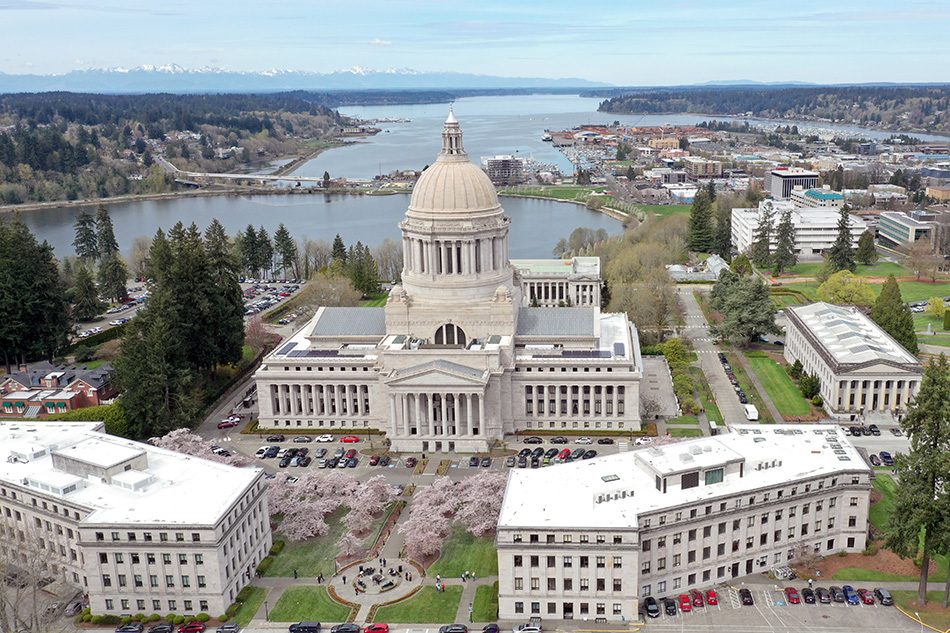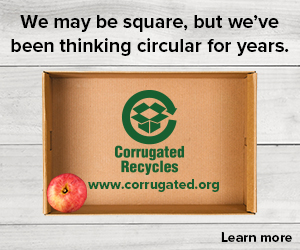
Olympia, Wash. | Christoper Boswell/Shutterstock
The Pacific Northwest has been hit hard by market downturns, driving lawmakers in Washington state to order an examination of how the state can fortify regional end markets and processing capacity. That research is now public.
Washington state has robust recycling collection infrastructure, which has developed over the past 30 years in part through legislation requiring recycling service.
But being located on the West Coast, many of Washington’s recycling programs relied on overseas markets, according to a new report titled “Developing Secondary Markets for Recycled Materials in the Pacific Northwest.”
That reliance meant significant disruption when China cut back on recovered material imports in 2018.
“While some recyclers have found markets in other Southeast Asian countries, this does not offer a long-term solution, since these countries are also beginning to increase restrictions of scrap imports,” the report notes. “With a large amount of collected material from its recycling programs, Washington State faces an issue of how to divert this waste from the landfill to appropriate markets.”
The report, completed by researchers at the University of Washington, was spurred by recent action at the legislative level.
Washington state lawmakers in April approved a bill creating a “recycling development center” focused exclusively on improving materials recovery efforts in the state. The center will provide research and development, marketing, and policy analysis to build up recycling markets and processing capacity. The report is a first step toward that goal.
“This law’s passage comes at a time when recyclers increasingly struggle to find markets for recycled materials in the face of rising contamination standards, volatile international markets and dwindling local buyers,” according to the report.
Recommends plastics recycling facility
To grow recycling markets in the state, the authors advise state decision-makers to explore development of a plastics recovery facility (PRF); develop a regional partnership with Oregon and British Columbia as possible partners; create an “accelerator” program providing business support to market-development projects, examine ways to increase the state’s attractiveness for manufacturers that incorporate recycled feedstock, and create a database for manufacturers and one for material processors to connect with each other.
A PRF would take in bales of mixed plastics from MRFs and further separate the resins using optical scanning equipment, according to the report.
“Depending on the facility, sorted polymers can be processed into bales or converted into flakes, pellets, preforms, extruded sheets or other secondary products,” the report states.
A secondary plastics sorting facility in the Northwest was previously proposed by Portland, Ore.-based Denton Plastics. The concept has been employed elsewhere in the country, although a high-profile PRF in Maryland closed permanently after experiencing financial and operational struggles.
The report also suggests outreach strategies focused on aspects of recycling. For instance, the state could engage in a “buy recycled” marketing campaign aimed at residents as well as government procurement offices. The state could also put on a “manufacture with recycled materials” campaign aiming to increase recycled feedstock use among producers in the state.
The recycling development center must report to the state legislators and governor about the project’s progress by June 2020. At that time, the center must also finalize and submit its workplan for the following fiscal year.
More stories about markets
- ‘Operational readiness is high’ as Oregon rolls out EPR
- Pizza box demand declining, report says
- Paper operations close in Georgia, Texas



